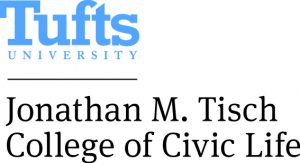Recent political theorists have retrospectively categorized some historical authors as “republicans.” Their lists of authors vary, but they typically include Cicero, Machiavelli, and John Adams, among others. Melvin Rogers (2020) argues that Black American thinkers before the Civil War (notably, David Walker, Hosea Easton, Martin Delany, and Frederick Douglass) drew deeply on republican thought and developed versions of it that emphasized racial equality.
This is a 12.5 minute video on republicanism by Peter Levine.
Looking back on this tradition, recent theorists have discerned different core or definitive ideas:
- For Pettit (2000), the defining idea is “non-domination.” To dominate is to exercise one’s will over someone else without having to give reasons or follow procedures. Domination is a fundamental evil, preventing most forms of human flourishing. According to Pettit (and cf. Shapiro 2016 and others), republicans propose and defend institutions that prevent domination. Because a government can dominate, republicans favor limitations on governmental power. However, other institutions can also dominate, and at least some republicans have sought to empower governments to block domination in families, religious congregations, and workplaces.
- For Arendt (1963) and others before and after her, the defining republican idea is virtuous participation. Republican theorists expect people to participate actively and well in public life. They may view good participation not only as a means to desirable outcomes but also an end in itself. (Perhaps civic engagement is part of a good life.) Republican theorists disagree about what constitutes virtuous participation, but they often focus on public-spiritedness, concern for the common good, eloquent public speaking, and a willingness to sacrifice.
Historical authors who are described today as republican theorists may endorse both of these ideas, to varying degrees. For instance, Rogers (2020) explicitly finds both non-domination and virtuous participation in the work of antebellum Black thinkers.
A republic (in the sense of republican theory) can be a democracy. Indeed, some republican theorists believe that democratic principles, such as one-person/one-vote, are essential for achieving republican values. If some people are denied a vote, they can be dominated and they cannot participate.
However, republicanism and democracy are not synonymous:
- On one hand, a democracy may fail to meet republican standards. Sometimes majorities dominate minorities in democratic systems, and that violates the republican ideal of non-domination. And some democracies expect very little of their citizens apart from optional voting, which violates the republican ideal of virtuous participation.
- On the other hand, republican values can be strong in settings that are not democracies. For instance, the Republic of Letters was an informal, international community of authors in the 17th and 18th centuries. It was not a democracy, because no decisions were made; therefore, its decisions could not be democratic. But it was arguably a republic because participants did not dominate one another and did value participation. Today, some online communities, religions, and networks might be republican (in similar ways) without being democracies.

